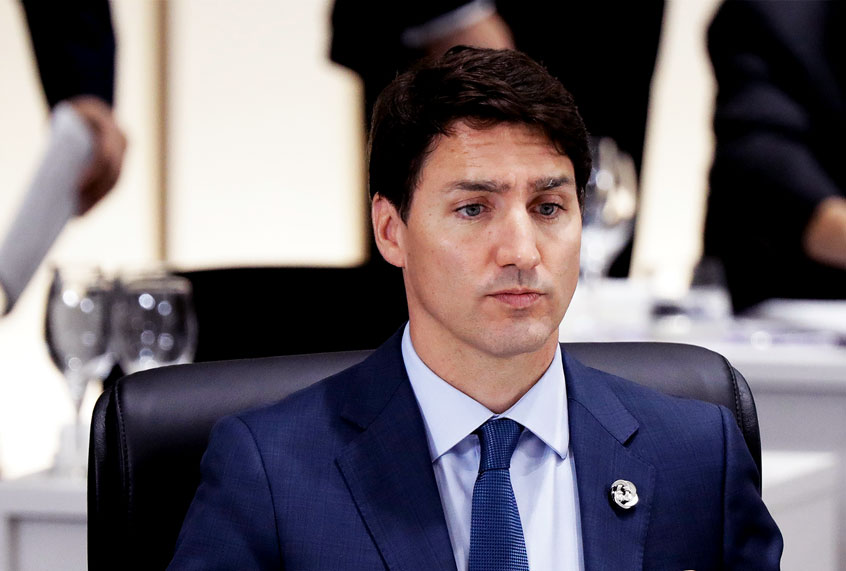Two more incidents of racist caricaturing from Justin Trudeau’s past have come to light after the Canadian prime minister apologized for a 2001 photograph showing him dressed as a character from the movie “Aladdin” with brownface makeup.
The controversy first emerged Tuesday when Time magazine published a photograph showing Trudeau wearing a turban and robes with his face, hands and neck completely darkened. Trudeau was 29-years-old at the time the photograph was taken at an “Arabian Nights”-themed gala; it later appeared in a yearbook for the West Point Grey Academy, where he worked as a teacher.
“I should have known better,” the prime minister said Wednesday night as he addressed reporters, “but I didn’t, and I’m really sorry.”
At the same time, Trudeau appeared to suggest that scandals such as this one should be evaluated “on a case-by-case basis.” The prime minister added that “it was something I didn’t think was racist at the time, but now I recognize it was something racist to do.”
Since then, Trudeau has admitted to dressing up in blackface to perform the Jamaican folk song “Day-O” while in high school, according to the New York Times. The Canadian publication Global News also published a video of Trudeau wearing blackface and an Afro in the early 1990s.
Separately, the Canadian Broadcasting Corporation revealed a second photograph of Trudeau in brownface at the academic party, this time with his arms around two men who appear to be Sikh.
Trudeau joins a long list of politicians who have been revealed to have darkened their skin in past racist incidents in 2019. Although she claims she does not remember doing so, it was revealed that Alabama Gov. Kay Ivey, a Republican, smeared black paint on her face for a comedy sketch while she was a student at Auburn University in the 1960s. While Ivey expressed “genuine remorse” for the incident, she refused to resign, saying: “That happened 52 years ago, and I’m not that person.”
Earlier this year, a photograph on Virginia Gov. Ralph Northam’s page in his 1984 medical school yearbook was revealed showing one man in blackface and another man in Ku Klux Klan regalia. Although Northam initially admitted to being one of the two people in the photograph, he later reversed that claim. Northam resisted calls for his resignation despite Republicans attacks, which included President Donald Trump.
“Democrat Governor Ralph Northam of Virginia just stated, ‘I believe that I am not either of the people in that photo.’ This was 24 hours after apologizing for appearing in the picture and after making the most horrible statement on ‘super’ late term abortion. Unforgivable!” Trump tweeted at the time.
It was later revealed that Virginia Attorney General Mark Herring admitted to appearing in blackface in 1980. At the time, pundits speculated whether Herring would become governor if both Northam and Lt. Gov. Justin Fairfax, who was accused of sexual misconduct, resigned.
In the past, blackface was used in minstrel shows, which demeaned members of the African-American community by playing on racist stereotypes. President Abraham Lincoln and author Mark Twain were both known to enjoy minstrel shows; 11 “Looney Tunes” from the 1930s and 1940s have been pulled because of their use of blackface; and “The Jazz Singer,” the first ever motion picture with sound, infamously showed star Al Jolson singing in blackface. Since the mid-20th century, blackface has been increasingly condemned because of its close association with racist oppression. The same is true of brownface, yellowface — putting on makeup to appear Asian — and other forms of racial minstrelry.

